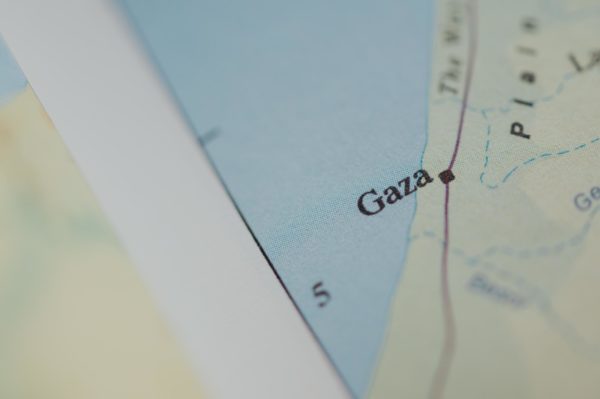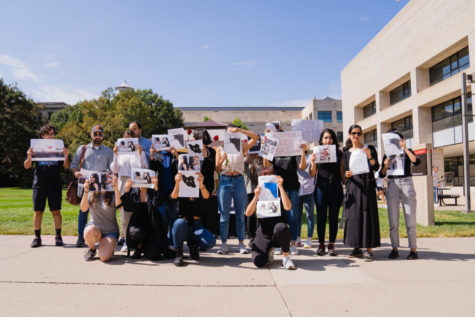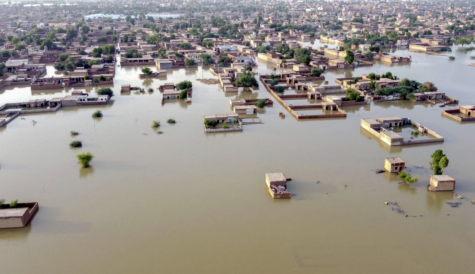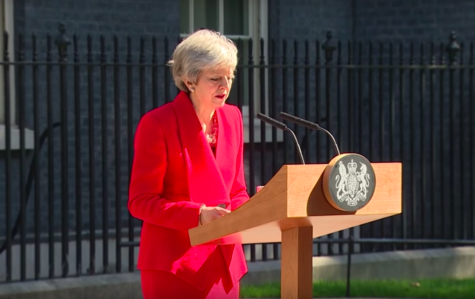Bombings and rocket attacks reported in Gaza and Israel
August 19, 2011
JERUSALEM — The Israeli military bombed sites in Gaza, and militants fired rockets from Gaza into Israel on Friday as tensions remained high a day after one of the worst terrorist attacks on Israelis in recent years.
A rocket that hit the Israel port city of Ashdod injured six people, including one who suffered serious wounds, the Israeli medical services said. It was one of 14 rockets fired from Gaza into Israel on Friday, the Israeli military said.
Also Friday, Israeli jets bombed a group of militants in and around the Nusseirat refugee camp in central Gaza, killing one member of the Popular Resistance Committees in Gaza, whose leaders were targeted by Israeli strikes Thursday, Palestinian medical sources said.
An airstrike north of Gaza City killed a boy in a home and injured five on early Friday, Palestinian medical officials said. Three other people were injured in a strike on a Hamas government compound south of the city while Israeli jets also struck a militant training field, they said.
The Israeli military said it hit two weapons manufacturing sites in central Gaza and “terror activity” sites in northern and southern Gaza. Israeli forces also fired on a militant as he prepared to fire a rocket in northern Gaza; the military said the militant fled.
The attacks come a day after assailants killed seven Israelis in a string of attacks on buses, civilian vehicles and soldiers in southern Israel on Thursday.
Israeli police said an eighth Israeli, a special operations officer, was killed late Thursday in fighting with Sinai border infiltrators.
“We all witnessed today an attempt to escalate the terrorist war against Israel by launching of attacks from the Sinai,” Prime Minister Benjamin Netanyahu said. “If there is someone who thinks that the state of Israel will let this pass, he is mistaken.”
Israel and Palestinians militants in Gaza have been at odds for years. Rocket fire from Gaza into southern Israel prompted a major offensive in Gaza by Israeli forces in late 2008.
There have been many terror attacks in Israel over the years.
In March 2008, eight students of the Mercaz Harav yeshiva in Jerusalem were killed when a gunman infiltrated the Jewish religious school and opened fire in the library, where about 80 people were gathered, mostly teenagers. The assailant, a resident of East Jerusalem, was killed by an IDF officer.
With the increase in tensions, entrance to the Al Aqsa mosque in East Jerusalem for Friday prayers was restricted to Palestinian men with Israeli identification cards over the age of 50 and Palestinian women older than 40.
Dozens of young Palestinians tried to break through a police roadblock in East Jerusalem, police said. The rioters were dispersed with a water cannon and stun grenades.
Before Thursday’s attacks, Israel had been on heightened alert in the south of the country, and an elite counterterrorism unit was in the area, according to an Israeli government source who doesn’t want to be identified because he cannot speak publicly about the matter. The counterterrorism unit and Israeli soldiers responded to the attacks, the source said.
Across the border, the Egyptian army and police are cracking down in an “anti-terror” operation in the Sinai area of Egypt, state-owned media reported Tuesday, as reports emerged of Osama bin Laden’s doctor surfacing in the area.
Police said they found hand grenades, machine guns, rocket-propelled grenades and ammunition in the operation that targets Sinai “terror cells” suspected in attacks on a gas pipeline to Israel and a police station in the border town of el-Arish.
Since the overthrow of the Mubarak regime, the security situation in Sinai has dramatically deteriorated. Senior Egyptian officials said several weeks ago that, more than 23,000 prisoners escaped from prisons in Egypt in late January and February because of the breakdown in regime authority.
About one-third of the escapees have been recaptured, but many apparently traveled to the Sinai to take advantage of the relative absence of state security. Many of the weapons looted from police stations ransacked during the revolution ended up in the Sinai.
Travel between Egypt and Gaza has become much easier since the Military Council reopened the border crossing at Rafah in late May. But along with traders — and Gazans just wanting a break from their cramped sliver of territory — there are signs that Islamist groups have begun taking advantage of weaker security. The crossing is the only land passage out of Gaza not directly under Israeli control.
Questions also are being raised about the Egyptian military presence in the demilitarized zone in Sinai, which was created under the terms of the Camp David Agreement signed in 1978 between Egypt and Israel.
CNN’s Michal Zippori contributed to this report
















